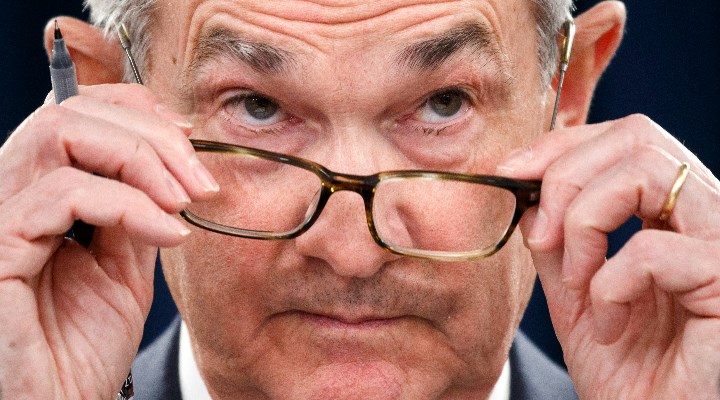
UK inflation has hit it highest level for nearly 30 years, according to the latest figures from the Office for National Statistics (ONS).
The cost of living rose by 5.4% in December from a year ago, up from 5.1% in the previous month, driven by higher food, energy, clothing and furniture prices, ONS said. It's the highest reading of the Consumer Price Index (CPI) since March 1992, when John Major was prime minister and the Ford Escort was the UK's best-selling car.
So what can investors do, and where does this leave Bank of England, whose job it is to keep inflation at 2%?
Eyes on February
In its December meeting, the Bank raised interest rates and predicted that CPI would peak at 6% in April before falling again. How quickly and by how much is hard to predict, despite its team of economists. Indeed, this is a global problem, as evidenced by the migration of policymakers and experts from “team transitory” to “team hanging around for much longer”.
The Federal Reserve has jolted the growth end of the markets by saying that interest rates may have to rise faster than expected, for example. A consensus has now emerged that the BoE will raise rates by another 0.25% to 0.50% at its next meeting on February 3. The Bank will publish its Monetary Policy Report at the same time, and there’s a chance that it will forecast inflation to stick around for longer than it expected a few months ago.
Charles Hepworth, investment Director at GAM, thinks the Bank of England has been behind the curve and is keen to play catch-up:
“A cost of living shock appears to be on the cards. In common with other central banks around the world, the BoE has left it very late to get ahead of this inflation problem, now at almost triple their target level, and it should have been reacting early into last year. The odds of another rake hike next month now look to be shortening.”
And a February rate hike may not be the last either, according to some economists.
“Recent economic data suggest the BoE will remain firmly in tightening mode,” says Silvia Dall’Angelo, senior economist at Federated Hermes. It is the first major central bank to raise interest rates since the pandemic, but rates at 0.25% are still near record lows.
In terms of calling the peak in the cost of living surge, energy bills are an example of a global issue that doesn’t have an obvious solution. In the UK much depends on the lifting of Ofgem’s price cap in April. Currently set at £1,277, it means that many customers will not pay more than a ceiling amount, but it could be lifted to £2,000 or even as much as £3,000. Milder spring weather could keep a lid on household bills but there are other unseasonal elements to the inflation conundrum, including petrol prices, and a shortage of goods.
What Can You Do?
Inflation could be the key issue this year so where does that leave savers and investors? There’s no easy way to hedge against rising energy and food costs but for those with money left over after meeting everyday bills, the choices are limited. Cash savings rates may have crept up after the last rate hike but the case for the asset class keeping up with inflation is still impossible to make.
“Those planning to leave money aside for five years or more should consider whether they’ve struck the right balance between cash savings and investments,” says Myron Jobson, personal finance campaigner at Interactive Investor.
“While everyone needs a cash buffer for emergencies and unexpected costs, investing can be a great way to beat inflation and grow your wealth over the long term.”
Adrian Lowery, personal finance expert at investing platform Bestinvest, meanwhile, says interest rate hikes make little difference to savers. “The UK’s leading retail banks don’t need savers’ deposits and so will probably decline to pass on base rate hikes in any meaningful way,” he adds.
Many FTSE 100 companies offering dividend yields near or above inflation and UK companies like banks are back in favour among investors — and don't forget interest rates are generally good for the financial sector as many products are linked to the BoE's base rate, including mortgages, personal loans, credit cards and overdrafts.
Higher energy prices are generally good for the resources-heavy London market too. There’s already evidence professional investors have started to weight their portfolios towards sectors that are better are generating cash in times of rising prices. Food retailers like supermarkets have seen their share prices rise in the last six months, for instance, a sign people are buying their shares.
After an initial fall, the FTSE 100 is in positive territory today, suggesting that financial markets had priced in the latest inflation print, even though it was higher than forecast. The leading index is now close to 7,600 points, within touching distance of the level seen before the coronavirus crash in 2020. Many other stock markets have gone above these levels, though, such as the S&P 500 and Dow Jones.
Bestinvest managing director, Jason Hollands, says that having financials exposure could be useful for investors, and relatively easy to achieve for UK ones through index tracking.
For passive funds, he suggests Fidelity Index UK fund and Artemis UK Select as a “punchier” active choice. Both funds have Morningstar Analyst Ratings of Silver. Among investment trusts, Polar Capital Global Financials Trust (PCFT) has a wider global remit, with some exposure to fintech and Asia. The trust has a three-star rating from Morningstar and its share price has risen nearly 7% so far this year.







.jpg)




















